Singing and light

Singing and light
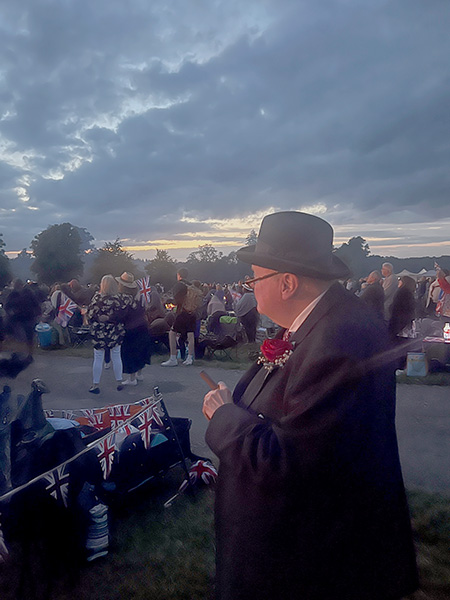 I have absolutely no idea where the last year has gone, unlike, of course, Latin lessons at school when I would be watching the clock hoping the big hand would move a little faster.
At this time year, every year, we welcome a wonderful gathering of friends and other friends who then brought another seven thousand of their friends to set up picnics on a fortuitously sunny evening, on the large grass area in front of the Castle for the annual Battle Proms concert.
There are so many things I enjoy about this event. First of all, perhaps, is the fact that it has now taken place here for 21 years which is somehow reassuring given that both we and it are still here. It is also a peculiarly British event – one huge picnic and outside entertainment in our notoriously unpredictable summer weather. Undaunted we always carry on but once again we were lucky.
I have absolutely no idea where the last year has gone, unlike, of course, Latin lessons at school when I would be watching the clock hoping the big hand would move a little faster.
At this time year, every year, we welcome a wonderful gathering of friends and other friends who then brought another seven thousand of their friends to set up picnics on a fortuitously sunny evening, on the large grass area in front of the Castle for the annual Battle Proms concert.
There are so many things I enjoy about this event. First of all, perhaps, is the fact that it has now taken place here for 21 years which is somehow reassuring given that both we and it are still here. It is also a peculiarly British event – one huge picnic and outside entertainment in our notoriously unpredictable summer weather. Undaunted we always carry on but once again we were lucky.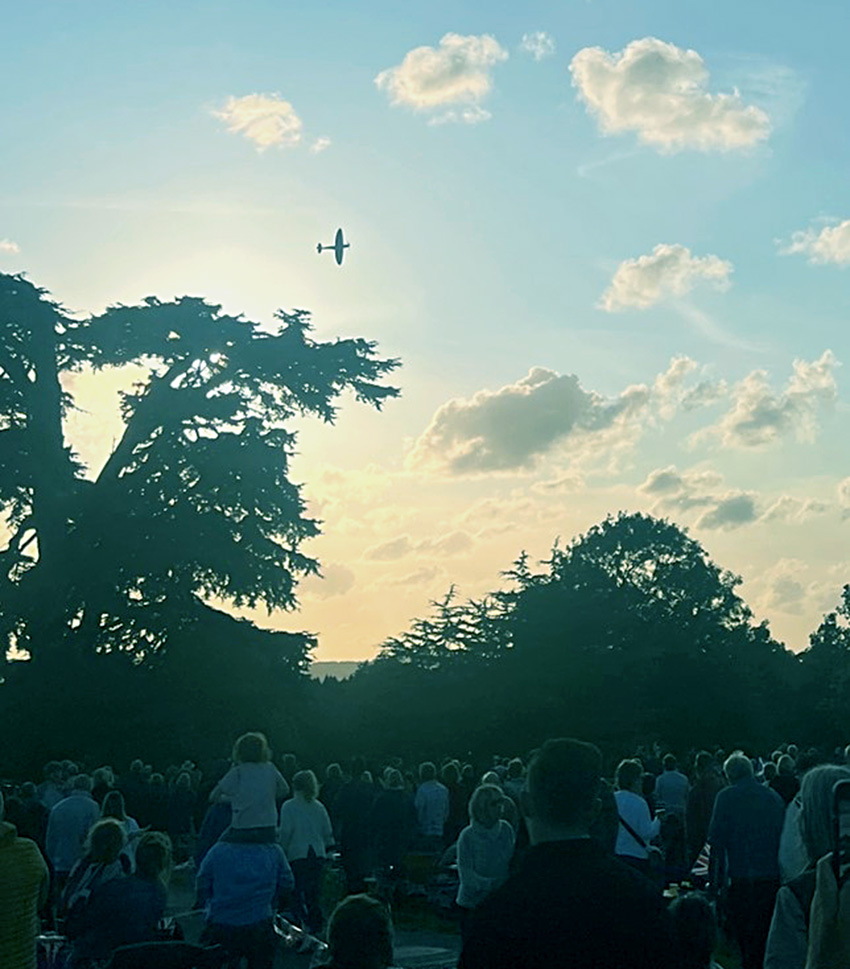 It is then a glorious mixture of old cavalry charge displays more reminiscent of the 19th century combined with singing which takes us back to the 1940’s. Early in the evening, a spitfire circles overhead, the elliptical wings so graceful, climbing, rolling and all of us stand in silence listening to the unique sound of the engine.
Throughout the evening we listen to wonderfully familiar classical music, sing along without quite knowing all the words and gaze in fascination at the spectacular fireworks.
It is then a glorious mixture of old cavalry charge displays more reminiscent of the 19th century combined with singing which takes us back to the 1940’s. Early in the evening, a spitfire circles overhead, the elliptical wings so graceful, climbing, rolling and all of us stand in silence listening to the unique sound of the engine.
Throughout the evening we listen to wonderfully familiar classical music, sing along without quite knowing all the words and gaze in fascination at the spectacular fireworks.
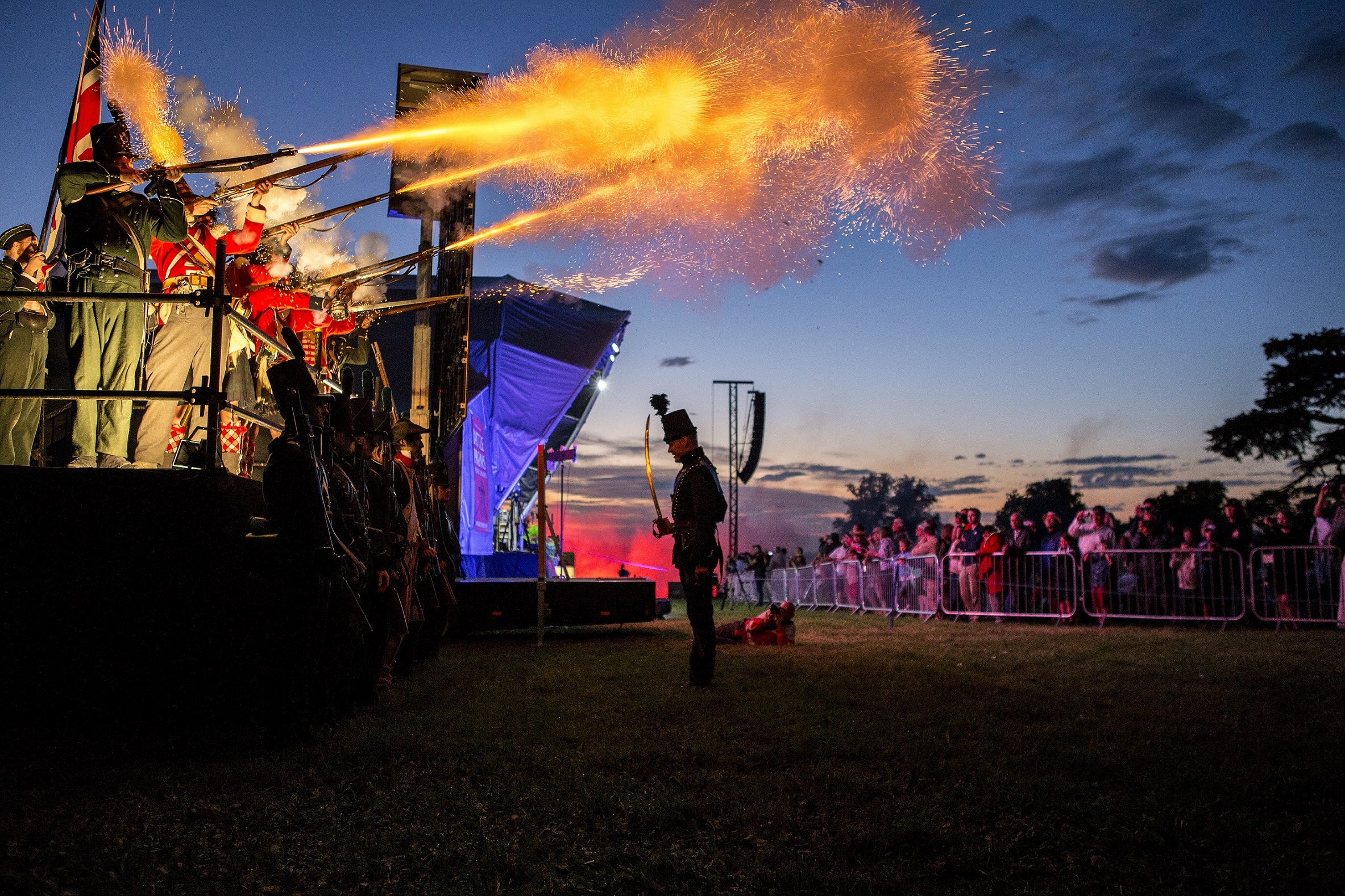 We do not often organise fireworks here because they are not enjoyed by most animals nor all people but every so often they are a lot of fun, bringing us all together, lighting up the darkness with colours and shapes fantastical.
Fireworks were first created by the Chinese and only really made their way to Europe in the Tudor times. The wedding of Henry VII in 1486 was marked by fireworks and Elizabeth I much enjoyed them – so much so that she created a “Fire Master of England”. William Shakespeare mentions fireworks, for example in “Love’s Labour’s Lost” and the misuse of pyrotechnics - gunpowder - was the cause of the fire which destroyed the original Globe Theatre. Two hundred years later in 1749, Handel wrote the Music for the Royal Fireworks to celebrate a peace treaty.
We do not often organise fireworks here because they are not enjoyed by most animals nor all people but every so often they are a lot of fun, bringing us all together, lighting up the darkness with colours and shapes fantastical.
Fireworks were first created by the Chinese and only really made their way to Europe in the Tudor times. The wedding of Henry VII in 1486 was marked by fireworks and Elizabeth I much enjoyed them – so much so that she created a “Fire Master of England”. William Shakespeare mentions fireworks, for example in “Love’s Labour’s Lost” and the misuse of pyrotechnics - gunpowder - was the cause of the fire which destroyed the original Globe Theatre. Two hundred years later in 1749, Handel wrote the Music for the Royal Fireworks to celebrate a peace treaty.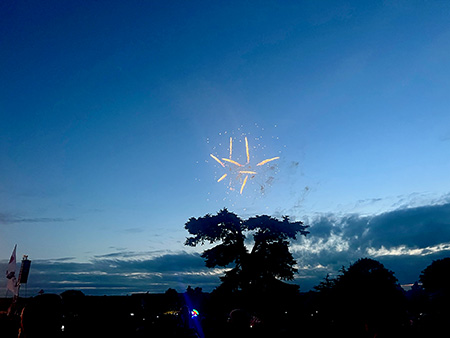 The Hindi festival of Diwali celebrates the success of light overcoming darkness from the Sanskrit words dīpa meaning "lamp, light, lantern, candle, that which glows, shines, illuminates or knowledge”. Apart from the obvious aspect of celebration of light, it is more reflective remembering those who are not with us and thinking about self-knowledge and understanding.
In contrast, the concert last night was simply of the moment. I am not sure many of us think very deeply about what we are all enjoying as we are there for the fun and friendship but there is no doubt that music allows us to connect to both our emotions and a feeling of togetherness.
The Hindi festival of Diwali celebrates the success of light overcoming darkness from the Sanskrit words dīpa meaning "lamp, light, lantern, candle, that which glows, shines, illuminates or knowledge”. Apart from the obvious aspect of celebration of light, it is more reflective remembering those who are not with us and thinking about self-knowledge and understanding.
In contrast, the concert last night was simply of the moment. I am not sure many of us think very deeply about what we are all enjoying as we are there for the fun and friendship but there is no doubt that music allows us to connect to both our emotions and a feeling of togetherness.
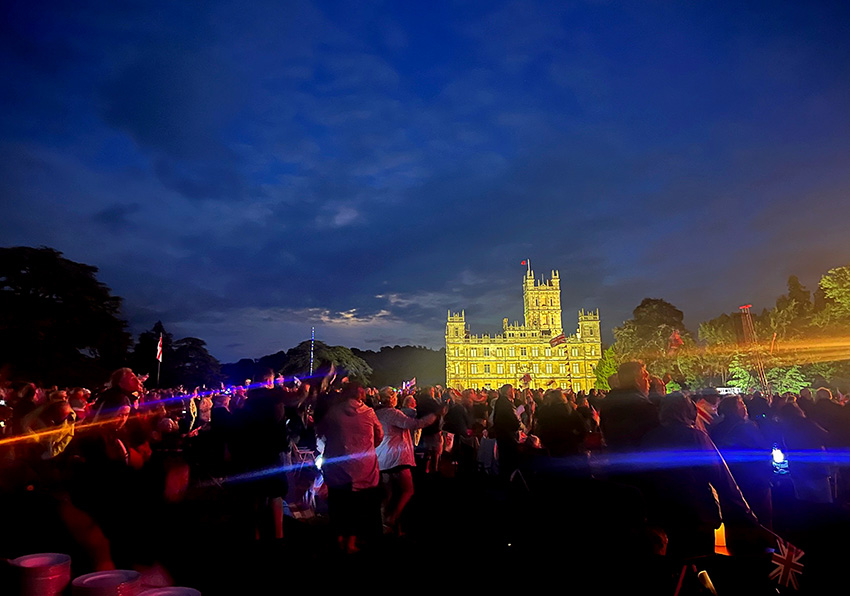
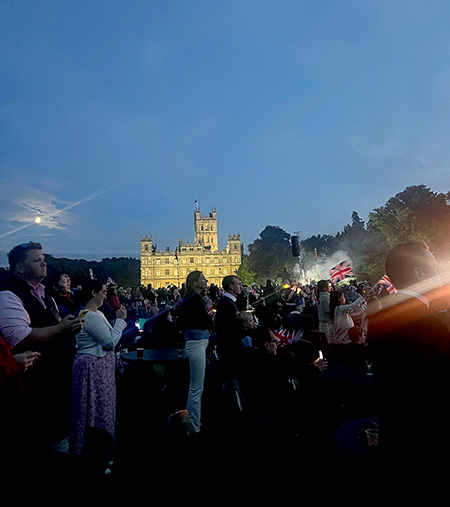 Research suggests that singing alters the hormones and neurotransmitters in our brains, specifically the ones which boost our mood and our immune system. Undoubtedly it reduces stress and I would have thought is good for breathing and confidence as we leave the Covid years behind us.
It was so clear that the covid isolation was unbelievably detrimental to people and that modern lives can be rather lonely but singing and choirs are a very old way of bringing people together and decreasing feelings of anxiety not to mention offering a breathing space from the overwhelming brain-chatter of all of our gadgets and short-term incessant news.
“Then the singing enveloped me. It was ….. coming from everyone's very heart. There was no sense of performance or judgment, only that the music was breath and food.”
Research suggests that singing alters the hormones and neurotransmitters in our brains, specifically the ones which boost our mood and our immune system. Undoubtedly it reduces stress and I would have thought is good for breathing and confidence as we leave the Covid years behind us.
It was so clear that the covid isolation was unbelievably detrimental to people and that modern lives can be rather lonely but singing and choirs are a very old way of bringing people together and decreasing feelings of anxiety not to mention offering a breathing space from the overwhelming brain-chatter of all of our gadgets and short-term incessant news.
“Then the singing enveloped me. It was ….. coming from everyone's very heart. There was no sense of performance or judgment, only that the music was breath and food.”
37 Comments
Lovely.
Lady Carnarvon
I always enjoy reading your blogs on a Monday. The pictures of the Battle Proms Concert look magnificent.
I visited Highclere Castle last Wednesday 26th July as this was a birthday gift on that day. I enjoyed a Castle Tour in the morning, including the Egyptian Rooms then afternoon tea in the Coach House. The day was made even more special when I discovered you had invited people to join you on a walk around the gardens at 1pm. It was my pleasure to accompany you and the many other visitors to Highclere, definitely more than the 5 people you expected. Your home and the gardens are beautiful. You are so knowledgeable and passionate about the Castle.
Thank you for making my birthday experience even more special.
Thank you Leigh, I'm delighted you had such a wonderful visit to Highclere.
Lucky you!! What a wonderful birthday
Karin in Vancouver BC
What a lovely celebration! Thank you for continuing the tradition.
Thank you for such wonderful thoughts and photo's.
I just had surgery so I'm going to listen to "happy" songs.
Again, thank you Lady Carnarvon.
Janet
That's a marvellous idea
What a wonderful celebration and the fact that you open the grounds to people to enjoy themselves like this is spectacular!! We want to visit England for a wedding anniversary, and seeing Highclere would top the list of places to visit. I love the way you share with us your beautiful world! Thank you!
Would have loved to be there ... sounds fantastic. Unfortunately I have no car - when I returned
to the UK after living in South Africa throughout my former married life - I decided that there
was enough public transport which we so lacked 'down south'. However, it's too late now to purchase one as just turned into my late eighties despite my having a perfectly clean British and a South Africa driving licence. I love walking but am afraid such venues as your castle are rather beyond my 'mileage allowances' . When wanting to journey afar I use trains and bus and for family events my son drives up to Hungerford from their home in East Berkshire. Diana B.
It sounds like it was a very festive and fun evening. Do your dogs panic at the sound of the fireworks? My brother’s Labrador is so dreadfully afraid of loud noises. I hope they were alright. Music is always medicine for the soul and I hope it helped soothe their nerves.
We always put on some lovely classical music perhaps slightly louder than usual.
Brilliant thank you.
This was so lovely written, so that, I enjoyed reading it twice. Thank you for sharing the details of an evening that I hope to attend one day. You are a true inspiration with your articles. Again I thank you Lady Carnarvon! With warmth sincerity, Christy Waldenmaier- Ponte Vedra Beach, FL USA
Thank you Christy, that's very kind.
Beautiful photos. Thank you for sharing your wonderful evening.
Lovely, lovely thoughts you have shared once again Lady Carnarvon. Right from the heart. Beautiful. Thank you.
Mary Barany
Summer festivities at Highclere looked wonderful and I’m sure so much fun. Looks like the weather was cooperating too. I have had the opportunity to visit Highclere a couple years ago and I’ m excited to visit again soon. Thanks for sharing your lovely pictures .. I enjoyed the puppies so much.
Splendid Photography
Thank you for share the experience with all who welcome you weekly message.
Royal Fireworks. Love an appreciate everything written by Handel but The Royal Fireworks is a favorite.
How Generous. So often you open an opportunity for people to experience the magic of Highclere. It is a magical place. I can only imagine the hours of preparation required when you welcome visitors to the many events you create.
Ann Bowron
In America but my heart loves England.
Hope to visit again soon.
Thank you Ann, yes do come and visit us again soon.
Lady Carnarvon,
Another Monday morning with your blog to read! Singing has been my stress relief for many years. Being in recovery mode for a mild heart attack in early July, I’ve had to postpone a second concert of Broadway songs and several favorite hymns which would have ended with “Let There Be Peace on Earth.” It was so helpful to me to read your belief about the wellness of singing!
Thank you for another interesting as well as worthy story of a lovely evening at Highclere. Always look forward to your and my Monday mornings.
Martha G.
Thank you Martha, I hope you are recovering well and that you make it to another concert very soon.
Best wishes
Lady Carnarvon
Thank you for your kind thoughts.
Martha
What a glorious celebration! Conferring high spirits and loving sentiments through music, song and festivities. How splendid!
Dear Lady Carnarvon,
It sounds like everyone had a wonderful time at a beautiful event. Fireworks can be so awesome. Music is the universal language which can effect the mind and heart in many ways. Singing is something I don't do often cause my voice is not pleasant to the human ear. When I am alone and the right song comes on I let my voice soar. It does feel great. The Castle is beautiful in the pictures. Take care.
Susan
Thank you Susan
What fun, loved reading your blog today! And the tip about classical music for the dogs; perfect for our next Fourth of July. Also loved the background of fireworks; I did not realize their use in England was well before Handel’s time. And I can really relate to your comments about singing. I sang in Church choirs from the age of nine, even singing Evensong for a week each in four different Cathedrals in England through the years. (Winchester was one in 2002, the year David Hill left) When I could no longer sing I went into a deep funk! I still miss that singing and your comments explain why, thank you.
A friend of mine living there did attend that lovely concert and sent me a similar and beautiful photo of Highclere Castle all lite via golden lights. So thrilled it was a lovely evening for you and Lord Carnarvon and all who attended and especially those that performed. Thank you again for another wonderful Monday Morning Blog (but sorry I'm reading it later in your day).
Remain well.
Lady Carnarvon...........Again you have an uncanny ability of bringing us into the activity you are sharing with us. Thank you for allowing us a small part of your celebration.
Just finished visited Highcelere Castle and now back to Canada! Lovely place! So much family history! Just don't have a chance to meet you! May be some other time! Have a great summer!!
Thank you for visiting
Delighted to see a picture of our mutual friend, “Winstan.” He tells me that he gifted you and your husband a copy of our little Churchill book, hope you both enjoy it as it was a delight to research. Highclere Castle and Highclere Gin both get a few mentions inside the pages. Cheers,
Gin Sander
I will enjoy it thank you!
What a treat to have a Spitfire in your mix of entertainment.
Having spent much of my life around restored WWII aircraft, each has it's own special sound. The Spitfire is especially sweet!
Midland Texas
It is an amazing sound
What a wonderful evening you all had. I am looking forward to visiting Highclere next year and with luck being there for one of your spectacular events.
Thank you for sharing it brings my homeland a little closer.
As David McCullough was once described you paint with words, truly a talent enjoyed by so many of us.
Looking forward to another monday blog
With thanks for generously sharing your life and home
Very kind thank you
The castle walls are glowing and look as though they are absorbing the wonderful sounds and sights of the evening.
Please note Hindi is a language, Hinduism or being a Hindi is a religion or religious belief.
Dear moderator
please ignore my comment just submitted- clearly an easy mistake to make!
many thanks
S Daya
Thank you and so sorry - I did actually try to research the value of the words in order not to wrongly express the sentence which I was perhaps trying to shorten too much
Lady Carnarvon,
This year is going by very fast.
When you want it to slow down, study a little Latin!
Fiat lux
And the Heavenly choirs are forever singing but we hardly ever stop to listen!
Another fascinating article, thank you Lady Carnarvon. I am in awe of how you manage to write such wonderful pieces every week along with the myriad of other things you are responsible for. You are a gifted, gift giver to many in so many ways.
Light is certainly a reason for celebration. Here in New Zealand, the latest, newest public holiday Matariki celebrates the appearance of the stars you call Pleiades (in the Northern hemisphere) in the Southern hemisphere.
They are only visible for a short time here, but were significant to the Maori population, who had no written calendar, marking the start of the new year.
It seems to be morphing into a mid winter light festival all over the country, and is a beautiful way for us all to celebrate the appearance of these stars on our horizon.
Perhaps we are learning a little more about the wisdom of our predecessors - And then celebrating!
What a wonderful night you had. Sadly we flew back home to New Zealand last night. We would love to have been there.
Thank you for taking the time to talk briefly with my sister and I on 26 July, after your impromptu garden tour. We thoroughly enjoyed our visit to Highclere and exploring the gardens and grounds. The wildflower meadow is stunning and the gardens brimming with vibrant colour.
We do hope that another episode of Downton Abbey or a 3rd moving is on the horizon. Also we enjoyed the recent documentary behind the scenes and learning about your books
Wishing you a fabulous month.
I think lots of us hope the same!
MY DEAR LADY CARNARVON ,
HELLO ,GOOD MORNING FROM RIO CLARO ,BRAZIL,
I LOVE MUSIC AND LIGHTING , HAPPY WEEK FOR YOU AND YOUR STAFF. I HAVE LATIN CLASS IN UNIVERSITY, VERY GOOD FOR ME. THANK YOU VERY MUCH FOR SHARING. HIGHCLERE CASTLE IS A LOVELY PLACE TO STAY. BYE.
VILLA ALEMÃ
RIO CLARO-SP
BRAZIL
,
Lady Carnarvon,
I enjoyed your blog today and was amazed at how many people seemed to be in attendance. Was there a final count of guest for the picnic and concert?
I would have thought towards 8,000
I was particularly awed by the picture of Highclare illuminated in the background of the crowd. Absolutely stunning! Thank you for all you do to care for your home & thank you for sharing the splendor of the estate!
It is fun isn't it!
Lady Carnarvon, We had the pleasure of being at the Battle Proms last July 2022, and it was such a memorable evening! I had planned our entire visit to central England based on the date for Battle Proms, after reading about in your blog in 2019. We came back 2 days later to tour the castle, and we were all enthralled with getting to view the interior! Thank you for writing your blogs. They are always so interesting, and you write so beautifully!
Dear Lady Carnarvon:
Thank you for this Monday's blog and very colorful pictures.
Congratulations! on the Battle Proms 21st anniversary. May it have many more to come.
Good to read that the weather cooperated. It appears that everyone of an enjoyable evening.
Until next week, may you have continued success with this and all other events at Highclere Castle.
Perpetua Crawford
Leave a Comment


- Christmas
- Community
- Dogs & Horses
- Egypt & Tutankhamun
- Entertaining
- Farm
- Filming
- Gardens
- History & Heritage
- Daily Life
- Royalty
- Cooking
- Interiors
- Heroes
- Architecture
- Cars
- Conservation
- Downton Abbey
- Events
- Gardens & Landscape
- Highclere Castle Gin
- History
- Planes
- Restoration
- Stories & Books
- Uncategorized
- Visitors
- Wildlife




Lovely picture of singing and light and did you and lord Carnarvon have a lovely weekend l lovely to visit highcelere castle and l am fan of Downton Abbey